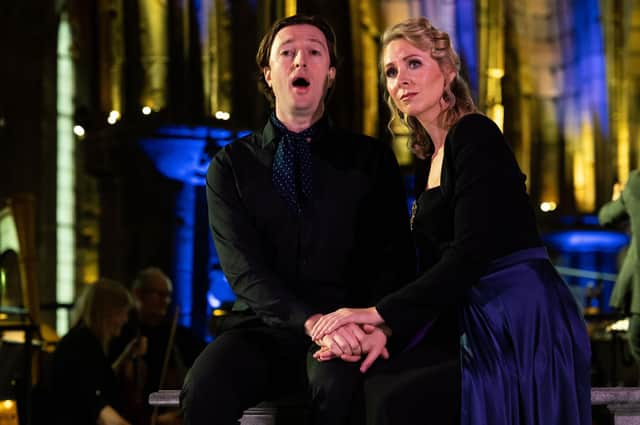Music review: Scottish Opera: Thérèse, St Mary’s Church, Haddington


Scottish Opera: Thérèse, St Mary’s Church, Haddington *****
Like a well-crafted short story, Thérèse arrives, packs a punch then leaves in double-quick time. At just 70 minutes, Massenet’s 1907 opera is dwarfed by most others and yet there is no shortage of drama. Staged as a concert performance by Scottish Opera as part of this year’s Lammermuir Festival, much of its success is down to casting. At the centre of Thérèse sits a love triangle, a woman torn between her loyal husband and ardent lover – and despite the absence of a large-scale production surrounding them, Justina Gringytė, Dingle Yandell and Shengzhi Ren embody these three characters as if their lives depended on it.
Indeed, life hangs in the balance throughout the performance. Set in a Versailles chateau in 1792 and a Paris apartment in 1793, this romantic tragedy may focus on the love-torn trio, but the French Revolution is never far away. A small cluster of military officers come and go – a constant reminder that while Thérèse, André and Armand may let their hearts rule their heads, those heads may soon end up in a basket.
Advertisement
Hide AdAdvertisement
Hide AdMassenet strived to evoke the bucolic setting of the first half, then pitch it against the war-torn streets of the second, and in the hands of the Orchestra of Scottish Opera, he gets his wish. The passion of love, the need to serve one’s country, and the unbidden desire to do both at once are all tangled up in the score, while Jules Claretie’s libretto drips with intensity. On a stage laden with talent, special mention goes to Yandell – when he sings, everything else in the world melts away, and there is only his voice.
That Thérèse should receive its Scottish premiere on the night of the Queen’s death came with an undeniable potency, as Gringytė cries out one of the opera’s last lines: “Long live the King”.